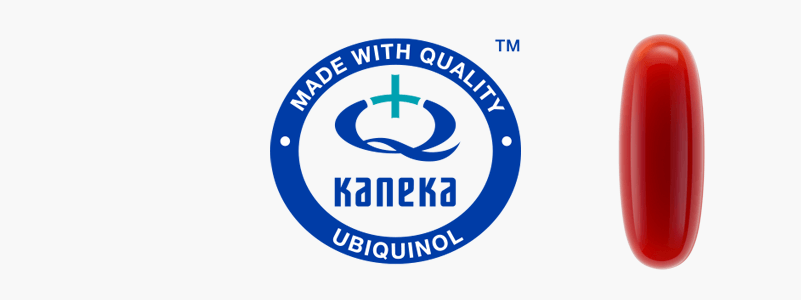Vitamin D shows up in nearly every multivitamin on the shelf - but why is it so widely included, and what does it actually do for your body?
From bone strength to immune defense, this powerhouse nutrient plays a role in some of your body's most vital functions. In this article, we'll unpack why vitamin D is considered a foundational nutrient, the benefits it may offer, and what to look for in a supplement to help support your long-term health.
Vitamin D's Mechanism of Action and Why You Might Need Supplementation
Vitamin D comes in two forms: D3 (cholecalciferol) and D2 (ergocalciferol). Both are converted by the body into an active, hormone-like form that supports many essential functions.
While your body naturally produces vitamin D when your skin is exposed to sunlight, things like location, skin tone, age, and time spent indoors can all affect how much you make. Foods such as oily fish, red meat, egg yolks, and fortified products offer some vitamin D, but often not enough to meet daily needs, especially in winter.
That's where a well-formulated multivitamin can make a difference. Total Balance includes up to 1,000 IU of vitamin D to support your body's natural systems and help fill the gap when sunlight or diet falls short.
Vitamin D's Role in Bone Strength
Vitamin D is primarily known for promoting calcium and phosphorus absorption in the gut and supporting bone mineralization, helping build and maintain a strong skeletal structure. Without enough vitamin D, the body may pull calcium from bones to keep blood calcium levels steady, which can weaken bones over time. This is why sufficient vitamin D intake at all life stages is crucial for supporting peak bone mass in youth and for helping maintain bone health later in life.
Vitamin D is particularly important for those who are at risk of bone loss, such as older adults and postmenopausal women, or individuals who don't consume enough calcium-rich foods. In addition, multivitamin supplements may contain other bone-supporting nutrients like calcium and magnesium that work with vitamin D in maintaining skeletal health.
How Vitamin D May Support Immune Health
Immune cells carry vitamin D receptors, and the active form of the vitamin produced by these receptors plays an important role in managing both our body's immediate and long-term immune responses. Research links adequate vitamin D levels to a potentially lower risk of acute respiratory infections. In fact, some meta-analyses have shown that supplementation may help lower the chances of getting these infections, especially in people who start with low vitamin D levels.
Given these findings, it's important to understand that vitamin D isn't a cure. Instead, its role in balancing the immune system suggests it can help support our immune health, particularly during times when we're more at risk due to less sunlight exposure.
Vitamin D and Muscle Function
Muscle tissue contains vitamin D receptors responsible for converting vitamin D to its active form of vitamin D, which is produced mainly in the liver and kidneys. Moreover, vitamin D is required for muscle calcium transport, which supports calcium's role in muscle function, including smooth muscle contraction.
Meanwhile, research indicates that adequate vitamin D levels may contribute to muscle strength and assist recovery after exercise. Deficiency in this vitamin, on the other hand, has been associated with muscle weakness and reduced function.
This suggests that vitamin D can play a supportive role in maintaining physical performance. As such, taking daily multivitamins with vitamin D may benefit those active in sports or exercise as well as individuals who want to maintain mobility in daily life.
Vitamin D's Function in Nerve Health
Vitamin D receptors are also found in nervous tissues, including those in the brain, which explains vitamin D's role in brain function and the nervous system. Research points to an increased risk in the older population for accelerated aging and cognitive decline linked with vitamin D deficiency.
These findings may indicate that vitamin D intake through multivitamins can help support overall neuromuscular coordination and cognitive health.
Vitamin D and the Heart
Similarly, vitamin D receptors are present in the heart and blood vessels, playing roles in regulating vascular inflammation and smooth muscle activity. Vitamin D helps regulate blood pressure by interacting with endothelial cells and smooth muscle cells. Deficiency in this nutrient has been associated with certain cardiovascular risk factors, which may be linked to a higher mortality and incidence of heart disease. That said, high-dose supplementation in most adults hasn't consistently shown clear heart benefits.
Thus moderate intake of vitamin D through multivitamins may help support key processes without exceeding safe limits, helping maintain cardiovascular health.
How Vitamin D Influences Healthy Inflammation Balance
Vitamin D influences inflammatory pathways by encouraging anti-inflammatory mediators and helping regulate immune activation. Furthermore, as it helps reduce inflammation and oxidative stress, vitamin D may also help lower the risk of chronic diseases.
While not a targeted treatment for inflammation, vitamin D's supportive role in inflammation regulation enhances its value in multivitamins aimed at overall wellness.
How Much Vitamin D Do Multivitamins Provide?
Most multivitamin products contain between 600-1,000 IU (15-25 mcg) of vitamin D, aligning with general adult intake recommendations. Many use vitamin D3, known for its superior bioavailability. You'll often see it paired with nutrients like calcium, magnesium, and vitamin K to support bone health and enhance absorption.
When selecting a multivitamin, look for products made in FDA-registered and GMP-certified facilities. It's also worth choosing brands that manufacture in ISO 9001-accredited environments to ensure quality and safety standards are met.
Vitamin D is a foundational part of most multivitamins because it helps fill common nutritional gaps and supports many of the body's natural systems, not just bone health. A well-formulated multivitamin that includes vitamin D can contribute to your overall well-being, especially when sunlight or dietary sources fall short. For best results, talk to your healthcare provider about what's right for your needs.


 Supplements
Supplements Bundles
Bundles
















